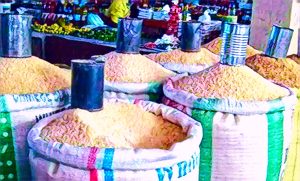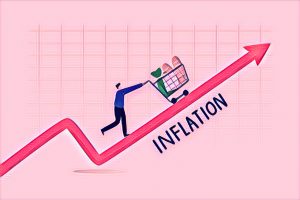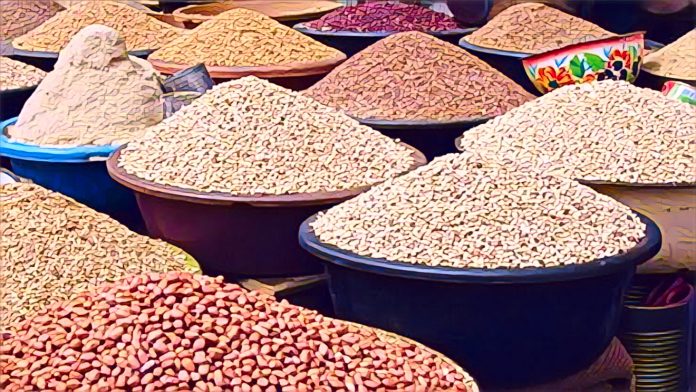KEY POINTS
- Nigeria imports 80% of its wheat from Russia and Ukraine.
- Food inflation hit 18%, with rising costs.
- Boosting local production could reduce dependency.
The Russia-Ukraine conflict, which erupted in early 2022, has sent ripples across global markets, triggering concerns about food security.
The war between two of the world’s largest agricultural exporters has disrupted international supply chains, leaving economies reliant on imports vulnerable.
The effects have been profound for Nigeria, a nation heavily dependent on food imports to meet domestic demand. Nigeria sources a significant portion of its wheat and grains from these two nations.
As the conflict persists, it has exacerbated food price inflation, pushing vulnerable populations further into hardship. Let’s delve into how the Russia-Ukraine war has impacted food prices in Nigeria, the challenges it poses, and potential paths forward.
Nigeria’s food import dynamics
Nigeria’s food supply relies heavily on imports, particularly for staples like wheat. The country imports 80 percent of its wheat from Russia and Ukraine, making it susceptible to disruptions in their agricultural exports. Grains from these countries account for 30 percent of Nigeria’s total grain imports. This dependence creates a fragile system where any external shock, such as war or trade restrictions, can destabilize the market.

In 2020, Nigeria’s food import bill stood at a staggering $4.5 billion, reflecting its reliance on foreign agricultural products. Despite efforts to boost local production, the gap between domestic demand and supply remains significant. This reliance is not just an economic issue; it also affects food security. With limited alternative sources, Nigeria faces an uphill battle in shielding its economy from external shocks like the Russia-Ukraine war.
Impact of the war on global food markets
The Russia-Ukraine war has disrupted global food markets in several ways. First, supply chain disruptions caused by the conflict have reduced the export volumes of wheat and grains. Ukraine, often referred to as the “breadbasket of Europe,” has seen its agricultural production hampered by the war.

Russian exports, on the other hand, have faced logistical and sanction-related challenges.
These disruptions have led to increased global price volatility. Wheat prices surged by over 30 percent within months of the conflict’s onset, creating a ripple effect on other staple commodities. Furthermore, countries implemented export bans and quotas to secure their domestic supplies, exacerbating the global food shortage. This confluence of factors has created a perfect storm, significantly impacting countries like Nigeria that are highly reliant on imported foodstuffs.
Effects on Nigeria’s food prices
The impact of the war has been stark in Nigeria, where inflationary pressures have reached alarming levels. By 2022, the inflation rate climbed to 18 percent, with food price inflation exceeding the general rate. Wheat and grain prices increased by 20-30 percent, directly affecting the cost of bread, noodles and other staples central to Nigerian diets.

Local production, though vital, has not been able to bridge the gap. Farmers face challenges such as inadequate infrastructure, limited access to financing, and insecurity, which constrain their productivity. This insufficiency has left consumers grappling with higher prices, and bakeries and food vendors are struggling to stay afloat as operating costs skyrocket.
Opportunities and challenges
The crisis presents opportunities for Nigeria to rethink its food systems. Encouraging diversification by promoting local food production is one potential solution. The government could invest in agricultural infrastructure and provide subsidies to farmers to boost output. Import substitution, such as sourcing wheat from other regions or investing in alternative crops like cassava, could also reduce dependence on volatile global markets.
However, challenges abound. Infrastructure constraints, including inadequate storage facilities and poor road networks, hinder agricultural productivity. Security concerns, especially in northern Nigeria, disrupt farming activities and displace communities. Additionally, climate change poses a long-term threat to Nigeria’s agricultural potential, with unpredictable rainfall patterns and extreme weather events affecting crop yields.
Statistics
Nigeria imported goods worth $1.51 billion from Russia in 2023, according to the United Nations COMTRADE database on international trade. This figure highlights the deep challenges within Nigeria’s economic and food systems, particularly as the country relies on Russia and Ukraine for 80 percent of its wheat supply. The ongoing war in the region has triggered a 30 percent surge in global wheat prices, intensifying the strain on Nigeria’s economy.
The country’s inflation rate surged to 18 percent in 2022, with food prices climbing by 20-30 percent. By December 2023, the headline inflation rate rose further to 28.92 percent, up from 28.20 percent in November. This represents a 0.72 percentage point increase within just a month. In 2024, the inflation crisis deepened, with the headline rate reaching 32.70 percent in September, up from 32.15 percent in August. Food prices alone skyrocketed by 37.77 percent in September 2024 compared to the same month the previous year.

Adding to the economic strain is Nigeria’s staggering $4.5 billion food import bill, underscoring the nation’s heavy reliance on foreign agricultural products. These alarming figures underscore the vulnerabilities in Nigeria’s food system and the urgent need for sustainable solutions to ensure food security.
The Russia-Ukraine war has exposed the fragility of Nigeria’s reliance on food imports. From rising prices to inflationary pressures, the conflict has disrupted lives and businesses across the country.
However, it also offers a chance to pivot toward sustainable solutions, such as boosting local food production, fostering regional trade, and adopting innovative agricultural technologies.
By addressing these challenges head-on, Nigeria can build a resilient food system capable of withstanding future shocks. While the road ahead is fraught with challenges, the crisis could serve as a catalyst for transformative change in Nigeria’s agricultural sector.



